Nutrition is rarely black and white. Discussions around nutrition for fertility are a perfect example of this.
Infertility can happen for dozens of reasons. Based on the current state of affairs in the western world, where ⅔ of us are overweight, the focus is often put on the metabolic and hormonal imbalance that accompanies excess body weight (like the majority of cases of PCOS).
But, there’s a big elephant in the room that a lot of folks ignore. I’m talking about undereating.
Undereating and infertility go hand-in-hand.
The infertility diagnosis of functional hypothalamic amenorrhea (FHA) is classically linked to undereating. It can also be related to weight loss, stress, and exercise (all of which can directly or indirectly affect your food intake and energy needs), but ultimately, it results in low levels of estrogen and is often accompanied by low insulin levels, high cortisol, and low thyroid hormones (specifically T3).
The result of these imbalances are, as researchers put it, “profound impairments of reproductive functions” which includes not ovulating. FHA is to blame for up to 35% of cases in which adult women are no longer getting their periods. (J Endocr Investig, 2014)
In other words, there are two opposite extremes in the spectrum of infertility – on one hand you have insulin resistant PCOS and on the other you have hypothalamic amenorrhea. Different underlying causes, but same result: no ovulation, no period, and thus difficulty getting pregnant.
Looking beyond calories.
Most people assume that undereating is simply not eating enough calories or depriving yourself of food (whether accidental or intentional). But, in my experience, it’s often goes beyond calories. I prefer to look at undereating under a broader umbrella that accounts for nutrient intake, not just calorie intake.
Undereating in energy, macronutrients, or micronutrients can all affect your fertility. Maybe your problem is truly not eating enough food in general (lack of calories). Or maybe you’re eating enough in terms of your energy needs, but you’re not eating enough nutrient-dense foods to get the specific nutrients involved in maintaining your hormonal health.
There is so much nuance to this topic that I spent a whole hour discussing it with Lisa from the Fertility Friday podcast. This is my 5th appearance on her popular podcast and we really go in-depth on the consequences and solutions to undereating and infertility.
What we cover in our undereating and infertility interview:
- Is it possible to undereat and still get enough calories?
- The connection between flavor and nutrient density
- How practicing mindful eating may give you hints at whether or not you’re undereating.
- Could overeating be related to eating foods devoid of nutrients?
- How does undereating negatively impact fertility?
- The problem with “low-fat” diets
- Overcoming the myth that animal fats are bad for us
- The massive difference between the nutrient density of organ meats compared to regular muscle meats (and why you should try beef heart)
- The role of a nutrient dense diet in building and preserving fertility
- How to reduce sugar cravings in a way that doesn’t involve calorie restriction
- Why breakfast truly is the most important meal of the day
- How does shifting the focus to eating a nutrient dense diet affect your weight?
- Why I don’t recommend counting calories (see this post: 6 Reasons to Stop Counting Calories)
- How to trust that your body is capable of self-regulating your hunger cues (see this detailed post to learn how to know if your body is truly hungry)
Go here to listen to our interview on undereating and infertility or look it up on iTunes under Fertility Friday, Episode 155.
As Lisa so nicely sums up during our conversation:
“The quality of the food you eat is equal if not more important than the quantity, especially if and when you want to have a baby.”
We take several lengthy tangents on the importance of eating high quality food, eating enough fat, and eating organ meats. Bear with us as we both over share about the realities of learning to enjoy offal, like liver, kidney, heart, and tongue. By the time you make it to the end of the episode, you’ll understand why we’re so gung-ho about organ meats and how they play a vital role in overall nutrient intake and fertility.
If you find the episode helpful or have any follow up questions, please tell me about it in the comments below. I’ll do my best to either address them here or in a future post/interview.
Until next week,
Lily
PS – If the topic of infertility hits home for you, you’ll definitely want to pick up a copy of our book Real Food for Fertility (co-authored with Lisa Hendrickson-Jack). This book was written many years after this interview and it’s wild to see how many of the topics Lisa and I discussed in this interview sometimes transforming into entire chapters within the book!
For example, you’ll find an entire chapter on PCOS, another chapter on hypothalamic amenorrhea, a whole chapter on foods to emphasize for optimal fertility, a whole chapter on vegetarian diets, and so much more. For a full breakdown of the topics covered in the book, check out the book website (and be sure to snag a copy of the first chapter for free).

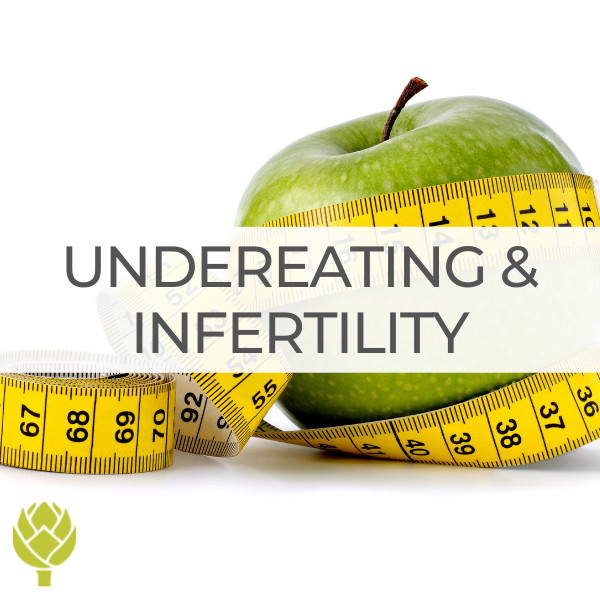

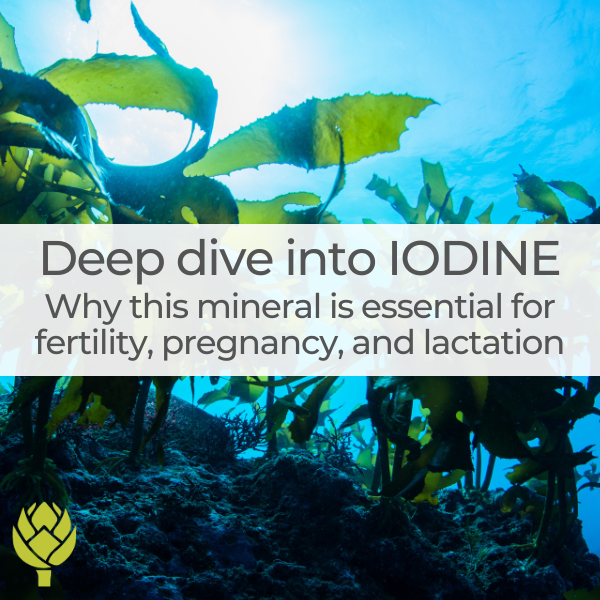
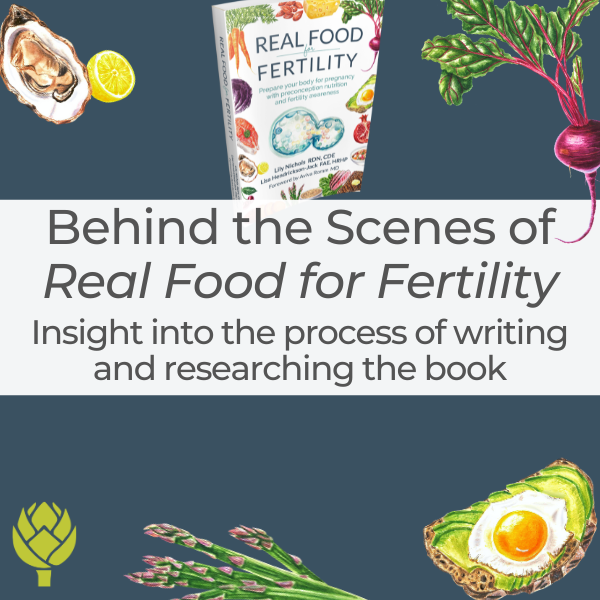
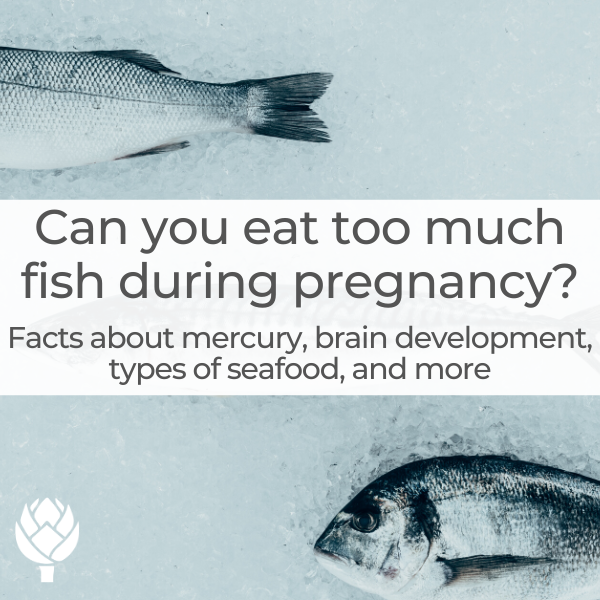
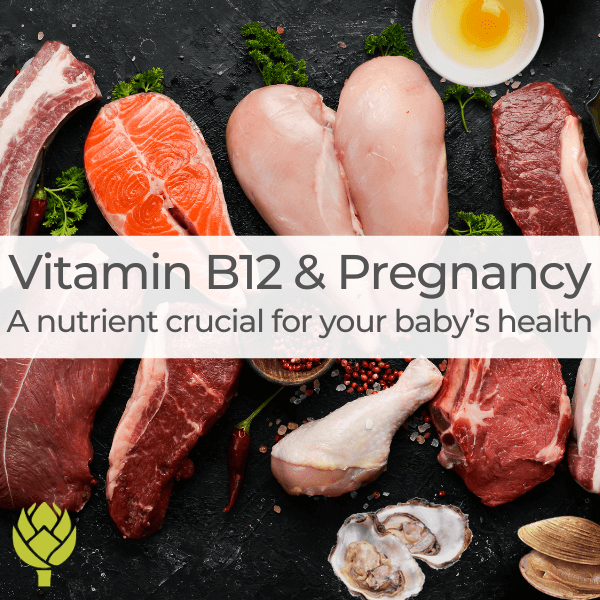



Is eating 1500 cal considered too little when trying to conceive? I try to make healthy choices and eat a variety of foods. But since I am technically over weight at 166, I am trying to lose weight while not pregnant. I am 5′ 6″ tall, so I think per BMI I am supposed to be like 140s-150s. I am down from 190lbs, but still have more weight to lose. I had hoped if I lost some weight it would help my chances of getting pregnant. But now I am worried about not getting pregnant because I am trying to lose weight.
Hi Breelee,
That’s hard to answer conclusively, though 1500 calories is too low for most adult women. I’d recommend picking up a copy of my book, Real Food for Fertility, co-authored with Lisa Hendrickson-Jack, to dive into this further. There are chapters on both PCOS and hypothalamic amenorrhea.